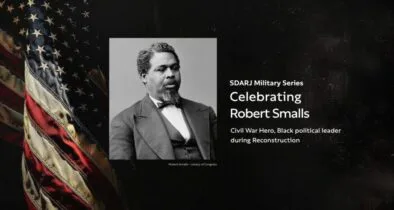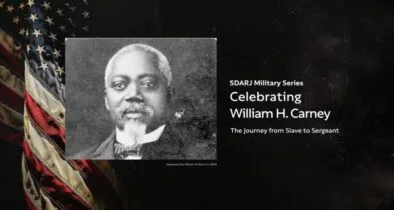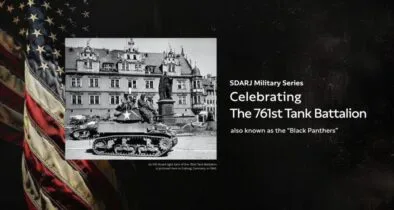Military Series – Major Oleta Crain
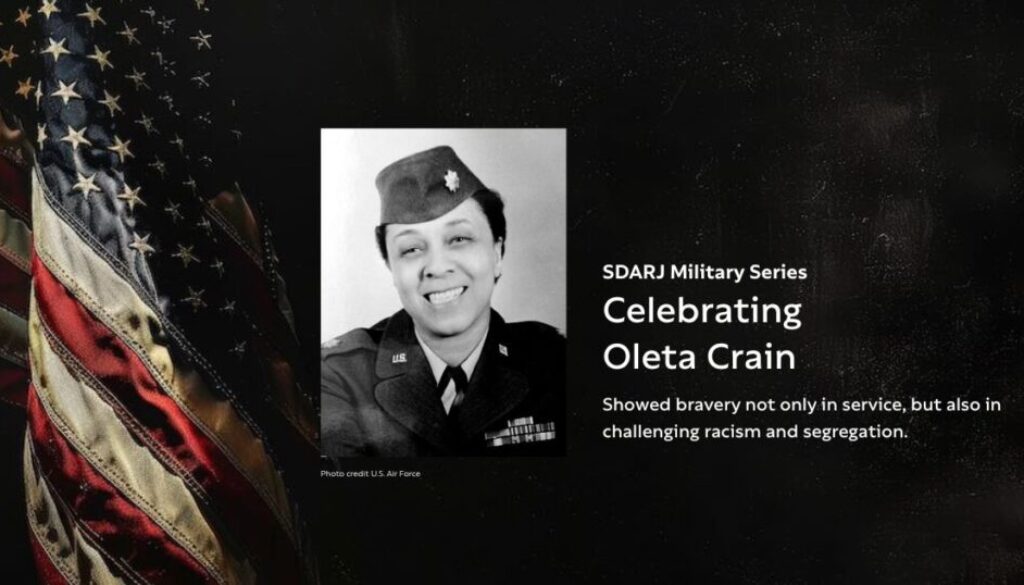
Black service members have played invaluable roles in the U.S. military since the American Revolutionary War and today, continue to serve honorably and bravely in all branches of the Armed Forces.
Major Oleta Crain Showed bravery not only in service, but also in challenging racism and segregation.
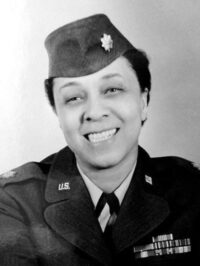
Major Oleta Crain
She served in the United States Air Force for 20 years, retiring with the rank of major. In 1964 she began working for the United States Department of Labor in Washington, D.C., becoming regional administrator of its Women’s Bureau in Denver, Colorado, in 1984. She traveled and spoke extensively to women about employment rights, wages, and career opportunities. She received numerous awards and honors, and was inducted into the Colorado Women’s Hall of Fame in 1988.
Oral History of Major Oleta Crain
In the early 1940s Crain taught gym and history in a segregated school in Hugo, Oklahoma. She decided to move to Colorado to find better-paying work and in 1942 obtained a job at the Denver Ordnance Plant cleaning toilets. She was inspired to enlist after seeing a Women’s Army Auxiliary Corps poster calling for women to join military bands to aid the war effort. Upon enlisting, however, she learned that they were not seeking black women.[6] Crain completed basic training and then applied to officer training. She was one of three black women out of 300 women nationwide to enter officer training in 1943.
Crain was promoted to corporal in December 1942 and to company leader of an African-American unit in February 1943. In September, she was discharged from the Women’s Army Auxiliary Corps so she could enter regular service in the Women’s Army Corps as an Air Force Second Lieutenant.
Crain was constantly exposed to racial discrimination in the army. For example, as officers in training, the black women were not allowed to sleep in the same barracks as the white women, but were housed in private rooms. Nor were they permitted to use the showers at the same time as whites. When Crain would take her African-American company to the swimming pool for their weekly exercises, they were usually informed that “the schedule had been changed”. If they did get to swim, the pool would be cleaned the following day. Crain often joked about the discrimination, telling a journalist who was coming to interview her, “The building has two elevators. Mine is at the back”.
First Lieutenant Crain was retained in the U.S. military after World War II. The Pentagon asked her to stay following the desegregation of the army “because she got along so well with the troops”. She was promoted to Captain in May 1948 and was transferred to Westover Air Force Base in Massachusetts to work in intelligence. When she was accused of being a communist by her superior officer, Crain underwent months of investigations and emerged with a top-secret security clearance.
She later served as personnel director at Elmendorf Air Force Base in Anchorage, Alaska (1951), test control officer at an American base in Ruislip, England (1952–1955), and manpower officer at Lindsey Air Station in Germany. She retired from active duty in June 1963 with the rank of major.
Sources:
1. https://en.wikipedia.org/wiki/Oleta_Crain


